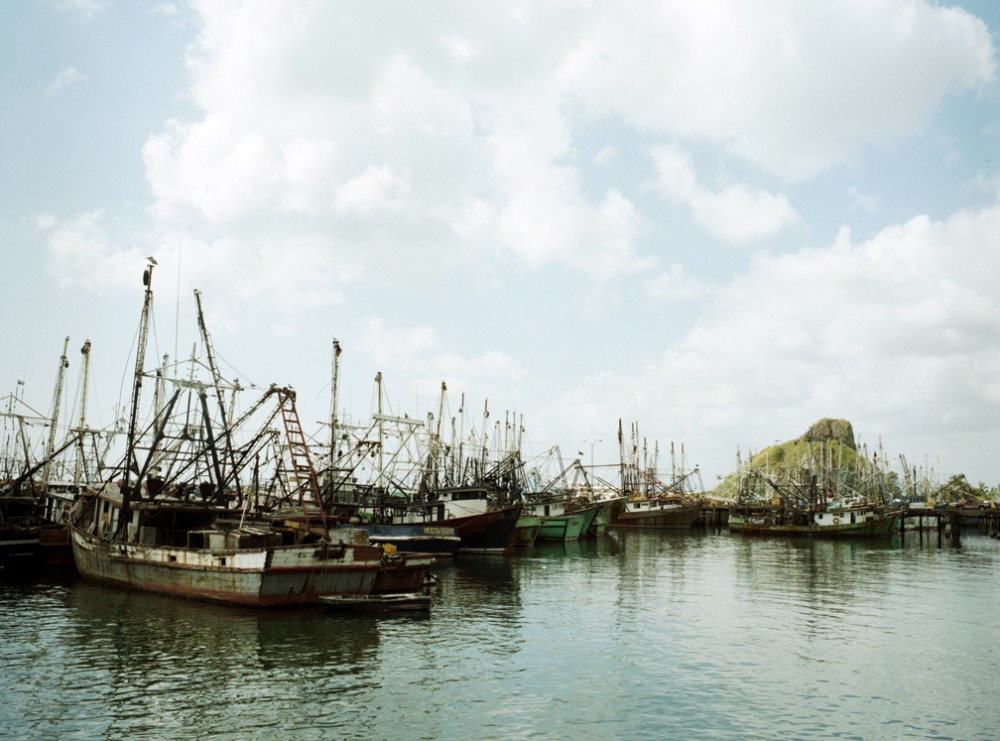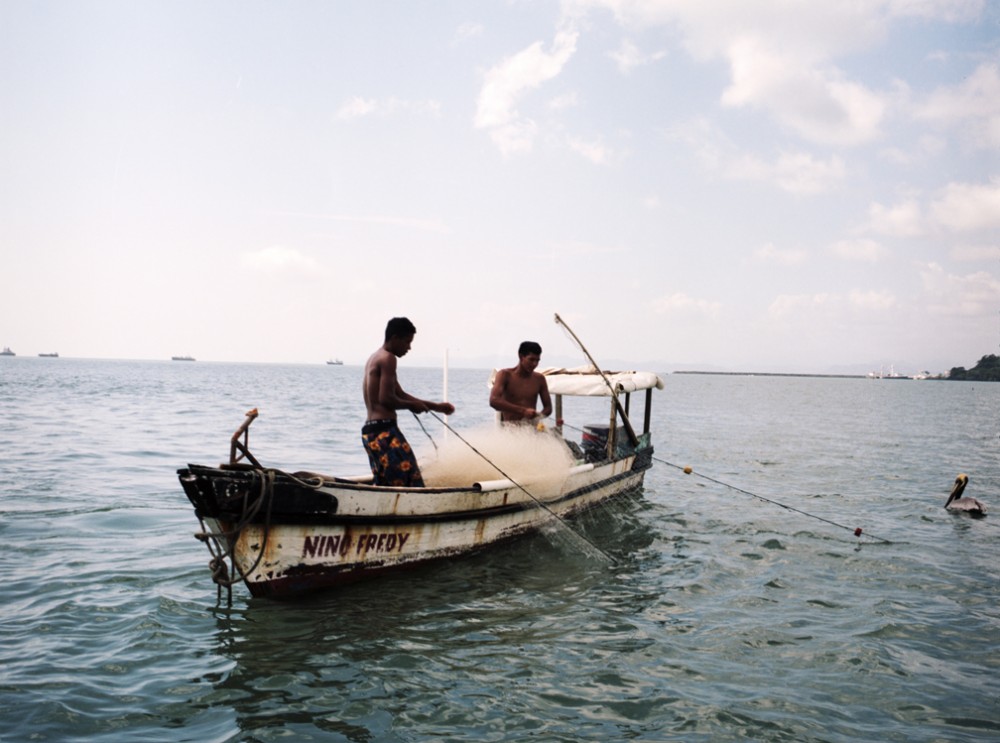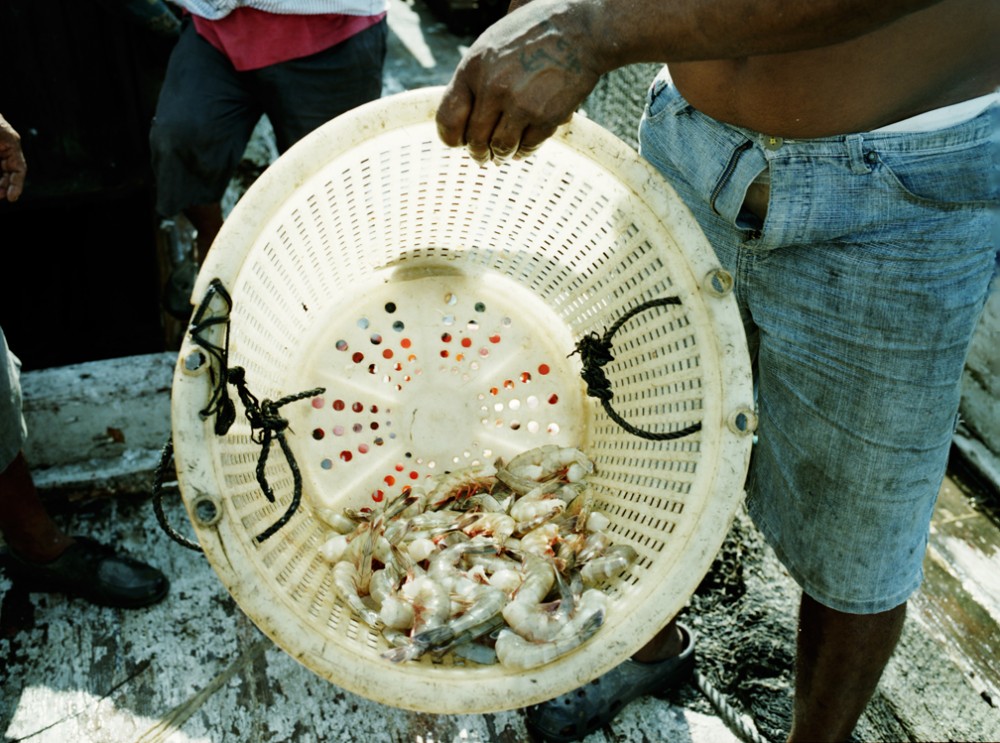“Shrimp Tales: the making of pink gold” traces the steps that shrimp pass through before being served on our plates. As this trajectory is invisible to consumers, we seldom question where products are made, by whom, and what these consequences entail. By interviewing and photographing those who produce, distribute, or sell shrimp, I hope to reveal this fundamental matter.
Shrimp is of particular interest because of its recent and rapid transformation into a global commodity. It is currently the fastest growing agricultural market due to the widespread establishment of shrimp farms throughout the third world. Although the drawbacks of mass-production are great (heavy reliance on inputs such as fertilizers and antibiotics, genetic modification, et al.), some argue that this shift is necessary. Staunch supporters of shrimp farms, mainly development agencies and government institutions, insist that natural supplies are scarce and mechanized production is the only feasible way to make shrimp commercially available to the masses. In addition, they argue, that this industry provides jobs and food security to the impoverished producers of the third world. The facts show, however, that 99% of harvested shrimp is exported to the US, Japan and Europe and that the commercial feed for aquaculture is one of the main causes of over-fishing.
Despite the complexity of the situation, "Shrimp Tales: the making of pink gold" offers an impartial stance. It represents the interests of industrial, artesanal, and farm-based producers alike. By deconstructing the commodity chain between North and South America, this highly pertinent project highlights issues in current debates surrounding the global food system, such as traceability, seasonality, carbon footprints, and genetic engineering. As the social and environmental consequences of the global food system are invisible to consumers, I hope this work will raise awareness of the processes of production that affect us all.














